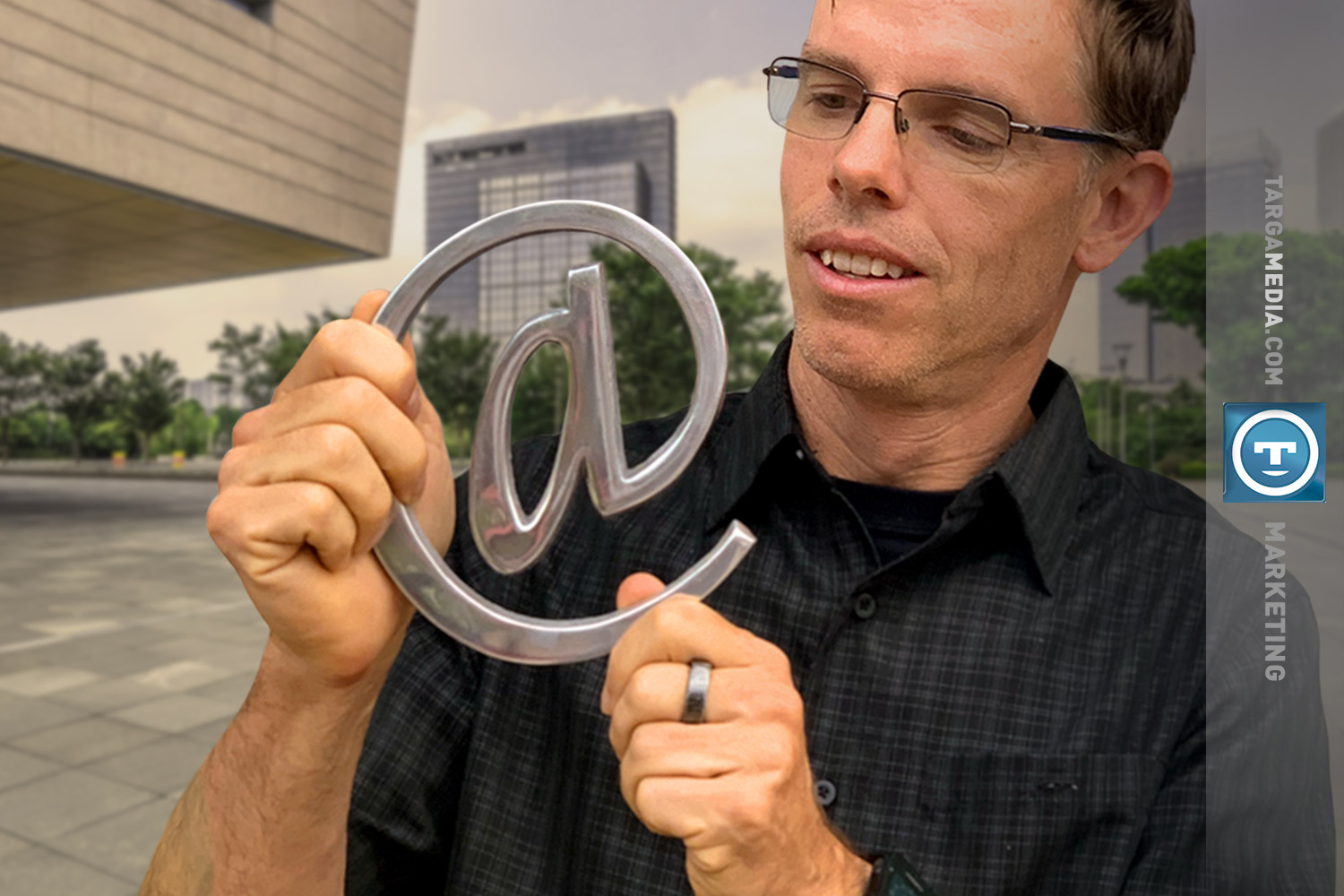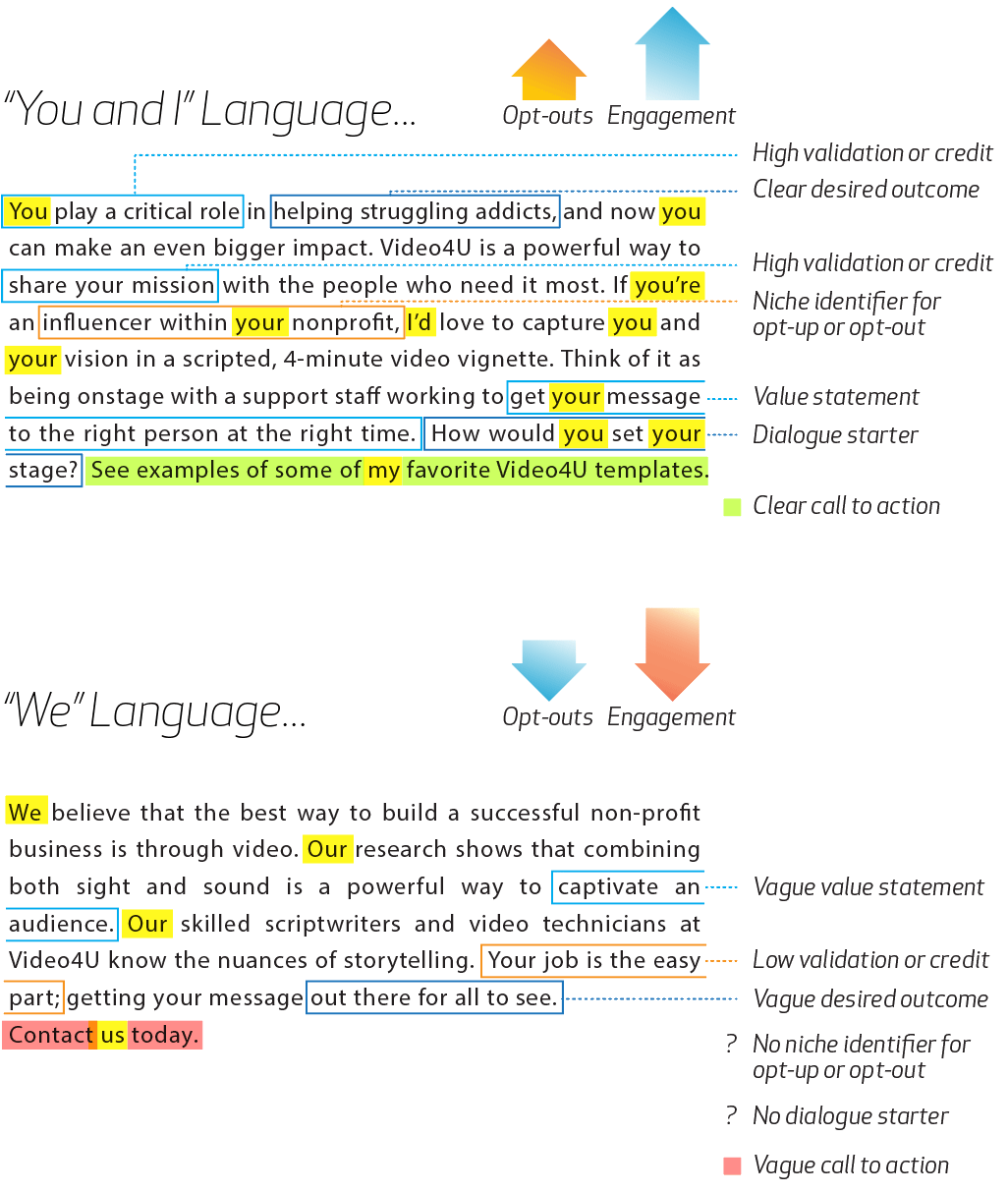

Jason Steed
Owner & CEO
Marketers, Don’t Fear the Opt-Out
We marketers and business leaders beat around the bush way too much. Let’s make your communication much more direct and effective, both in attracting the right audience and in repelling the wrong audience. Taking an “opt-out” approach is an effective gauge. Here’s why:
Marketers, if you can say, “Some of you won’t find this very relevant.” then you’ve succeeded in creating a clear, authentic message. You’ve essentially said that you understand your product and your audience well enough to communicate very specific value. So when someone opts out of your newsletter, campaign, or even your business at large, that doesn’t mean your marketing isn’t working. Actually, it’s just the opposite. Opt-outs are a necessary part of narrowing-in on your audience—finding the people who will benefit from your product or service.
The process of “audience purging” is something that I personally resisted for a very long time. I was concerned that the opt-outs would sour other relationships in my contact database. I was vain to think that people would waste their precious time as active naysayers. We’re all too busy optimizing, organizing, and filtering. And we should respect others who ought to filter us in return.
If somebody opts out of your list, that almost always means they know and “trust” you. Losing email permission does not mean losing trust. We don’t click the opt-out link within an untrusted source because we know we’ll likely validate our email address to spammers, thereby compounding the problem.
Our Relationship with our Inbox
Think of it this way: How do you deal with irrelevant communication from close friends and business colleagues? We all deal with this every day, foremost with social media. But that’s a whole other blog post. We feel more territorial, however, about our email inbox—our conduit to relevant tasks. Our inbox is our biggest and most relevant filing cabinet for all things personal and business. I get marketed to by some amazing people in my life; business colleagues, family and long-time friends whom I truly admire and respect. If their message or “product” isn’t relevant to me, I’ll ultimately filter it or opt out. Doing so doesn’t diminish my respect or admiration for them. I’m often grateful for their clarity of message and their product. And, yes, they may take my actions a bit personally, but that’s out of my control.
As a marketer, I need to understand you—my target audience. I must strive to be a valuable asset in your digital filing cabinet. To earn the right to occupy your email box, my message ought to support and propel you in some way in your goals. In every correspondence the burden is on me to clearly state how marketers and business leaders benefit from my product and message…or if I would just be wasting your time.
Strategy: Use “You and I” language instead of “We” language
Your story isn’t about you. “Your brand is defined by those who experience it.” [Brian Solis, digital analyst, speaker, and author] Using “you” language requires boldness and authenticity. It requires that you have a 1-on-1 dialogue with your audience.
.

“Your brand is defined by those who experience it. ~ Brian Solis”
“You and I” vs. “We” Example: Let’s say your client is a non-profit drug addiction center, and that your product, Video4U, captures a 4-minute video vignette of their story and business message. Your client could then use their video to build awareness in the community and grow their clientele:
“You and I” Language Example: Clear and focused messaging resulting in higher opt-outs but stronger engagements
You play a critical role in helping struggling addicts, and now you can make an even bigger impact. Video4U is a powerful way to share your mission with the people who need it most.
If you’re an influencer within your nonprofit, I’d love to capture you and your vision in a scripted, 4-minute video vignette. Think of it as being onstage with a support staff working to get your message to the right person at the right time. How would you set your stage? See examples of some of my favorite Video4U templates here…
“We” Language Example: Vague and diluted messaging resulting in perhaps fewer opt-outs but weaker engagements
We believe the best way to build a successful non-profit business is through video. Our research shows that combining both sight and sound is a powerful way to captivate an audience. Our skilled scriptwriters and video technicians at Video4U know the nuances of storytelling. Your job is the easy part; getting your message out there for all to see. Contact us today…
Using “You” language is just one strategy to help your best customers self-filter and increase in loyalty, including “emotion-led storytelling” and “persona-driven segmenting.”
In your own correspondence, whether with email marketing, social media, print, event marketing, or any campaign medium, make it easy for your database to self-filter. Embrace the power that you have to communicate a clear value proposition through text, imagery, tone, offer, channel or frequency. Avoid the temptation to try to be meaningful to everybody—you will ultimately lose authenticity with your most valuable customers. Trying to be a little bit relevant to everybody dilutes your message, and ultimately comes across as disingenuous and unauthentic. Authenticity begets confidence. Confidence and articulation will strengthen your opt-ins, and that’s what we’re really after.
More resources:
Four Tips for Concise Messaging – Jeremy Kartchner, Snapp Conner PR
Eleven Sales Pitch Examples – Melissa Williams, Sr. Content Marketing Specialist, YesWare
